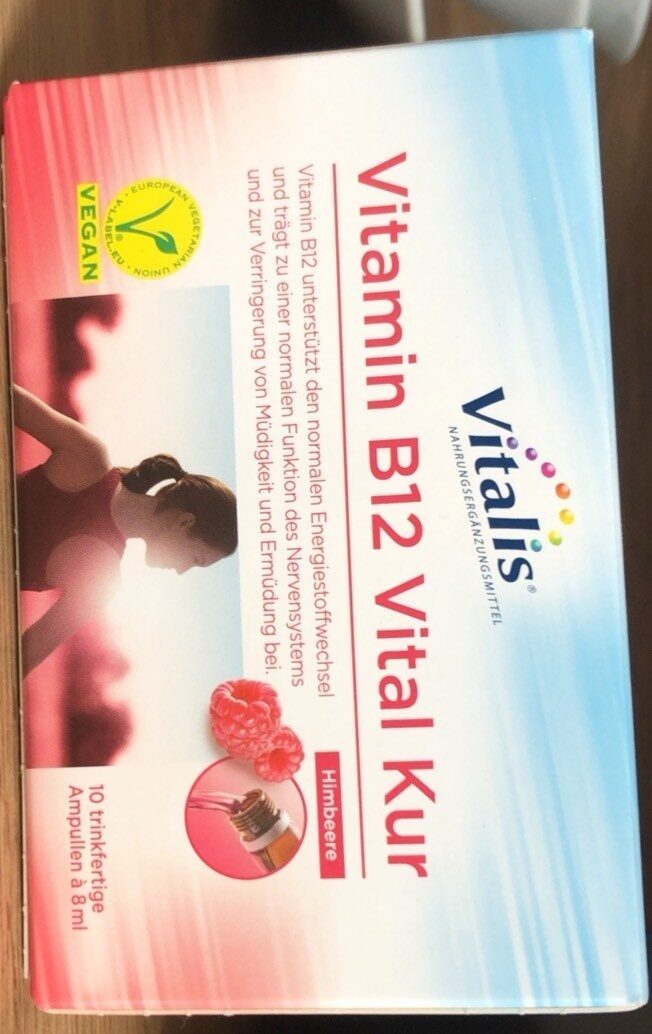Vitamin B12 Vital kur - Vitalis - 80 ml
This product page is not complete. You can help to complete it by editing it and adding more data from the photos we have, or by taking more photos using the app for Android or iPhone/iPad. Thank you!
×
Barcode: 4061458007801 (EAN / EAN-13)
Common name: Vitamin B12 Trinklösung
Quantity: 80 ml
Packaging: Plastic, Cardboard, Paperboard
Brands: Vitalis
Categories: Dietary supplements, Vitamins, de:Vitamin B12
Labels, certifications, awards:
Vegetarian, Vegan, European Vegetarian Union, European Vegetarian Union Vegan, de:Fsc-c001967

Manufacturing or processing places: 44229 Dortmund
Stores: Aldi
Countries where sold: Germany
Matching with your preferences
Environment
Packaging
Transportation
Report a problem
Data sources
Product added on by change
Last edit of product page on by fluff.
Product page also edited by kiliweb, openfoodfacts-contributors, packbot, yuka.sY2b0xO6T85zoF3NwEKvllxGScbjgxvKECHWm2Ca4vSrFLG2YIhtxLT7A6s.








